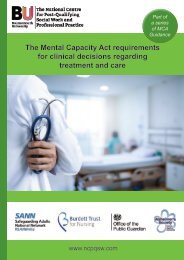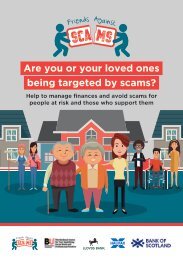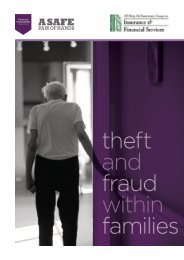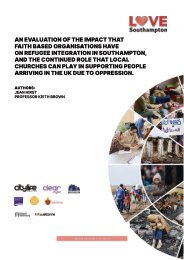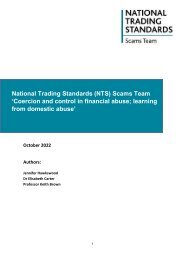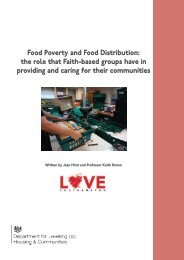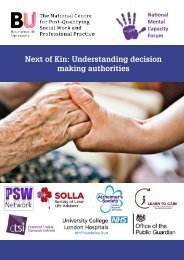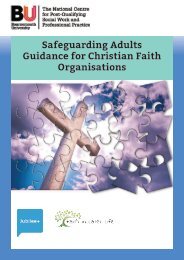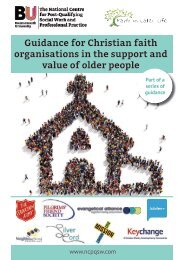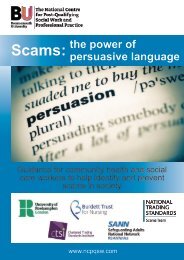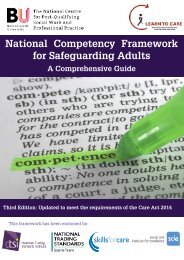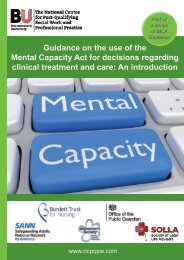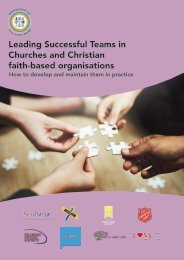Loneliness in Older People - Online
Some of the isolation and loneliness which people in the Fourth Age experience is due to the ageism in our society and in our churches. It is now time for churches to stand-up to the prejudices and discrimination of older people, to challenge the ageism we see in society and show that people in the Fourth Age are valued, celebrated, respected and included. Churches and Christian faith organisations should be leading the way to reach out to older people, to tackle ageist views and attitudes and demonstrate that older people matter.
Some of the isolation and loneliness which people in the Fourth Age experience is due to the ageism in our society and in our churches. It is now time for churches to stand-up to the
prejudices and discrimination of older people, to challenge the ageism we see in society and show that people in the Fourth Age are valued, celebrated, respected and included. Churches
and Christian faith organisations should be leading the way to reach out to older people, to tackle ageist views and attitudes and demonstrate that older people matter.
You also want an ePaper? Increase the reach of your titles
YUMPU automatically turns print PDFs into web optimized ePapers that Google loves.
<strong>Lonel<strong>in</strong>ess</strong> of the Fourth Age<br />
Old age itself does not <strong>in</strong>crease lonel<strong>in</strong>ess – rather there is an <strong>in</strong>crease <strong>in</strong> the risk factors and<br />
contributors to lonel<strong>in</strong>ess with <strong>in</strong>creas<strong>in</strong>g age eg. loss, liv<strong>in</strong>g alone, isolation, poor health,<br />
reduced mobility, <strong>in</strong>creased frailty.<br />
<strong>People</strong> liv<strong>in</strong>g <strong>in</strong> the Fourth Age are more likely to:<br />
• Live alone<br />
• Be bereaved/widowed<br />
• Have complex health issues<br />
• Struggle with disabilities and reduced functional abilities<br />
• Be socially isolated<br />
<strong>Lonel<strong>in</strong>ess</strong> is often about loss – loss of contact, confidence, employment, relationships or<br />
purpose. Those <strong>in</strong> the Fourth Age are commonly fac<strong>in</strong>g numerous losses, which contribute<br />
to feel<strong>in</strong>gs of lonel<strong>in</strong>ess – loss of family, partner/spouse, health and physical ability, cognitive<br />
impairment, social contacts/activities, mean<strong>in</strong>gful and regular relationships or purpose <strong>in</strong><br />
community/life. For some people liv<strong>in</strong>g <strong>in</strong> the Fourth Age, the opportunities for such mean<strong>in</strong>gful<br />
conversations and <strong>in</strong>teractions may be very few – due to social isolation and lonel<strong>in</strong>ess.<br />
Triggers which are likely to lead to lonel<strong>in</strong>ess for people <strong>in</strong> the Fourth Age <strong>in</strong>clude:<br />
• Be<strong>in</strong>g widowed<br />
• Liv<strong>in</strong>g alone<br />
• Hav<strong>in</strong>g nobody to open up to or share concerns<br />
• Poor health and/or deteriorat<strong>in</strong>g health<br />
• Not feel<strong>in</strong>g part of a social group or community<br />
• Unable to do the th<strong>in</strong>gs they want to – due to isolation, lack of money,<br />
poor health etc<br />
The Covid-19 pandemic has <strong>in</strong>creased the social isolation and lonel<strong>in</strong>ess of many older people –<br />
as they have been completely isolated, due to the need to shield for their own health protection,<br />
comply with lockdown requirements of communities and follow isolation or social distanc<strong>in</strong>g<br />
measures. Those liv<strong>in</strong>g <strong>in</strong> the Fourth Age who live alone found themselves completely cut-off<br />
from family, friends and society; only hav<strong>in</strong>g contact with others by telephone, <strong>in</strong>ternet or at a<br />
distance from the doorstep.<br />
But the pandemic has brought to light the plight of many older people <strong>in</strong> the Fourth Age who<br />
live alone and are lonely. <strong>People</strong> who had moved away for work or social reasons felt the impact<br />
of great geographical distances from their older family members, be<strong>in</strong>g unable to travel to<br />
visit; neighbourhoods sought to support older people <strong>in</strong> their communities with shopp<strong>in</strong>g and<br />
doorstep visits; the needs of those liv<strong>in</strong>g <strong>in</strong> care homes were brought to the fore, as social care<br />
staff fought for access to supplies and medic<strong>in</strong>es. Sadly, many older people, who were liv<strong>in</strong>g<br />
alone or <strong>in</strong> a care home, have died without be<strong>in</strong>g able to sit with a family member, see friends or<br />
family <strong>in</strong> their last days of life, or say goodbye to their loved ones.<br />
“<strong>Lonel<strong>in</strong>ess</strong> occurs when people’s ability to have mean<strong>in</strong>gful<br />
conversations and <strong>in</strong>teractions is <strong>in</strong>hibited”<br />
Age UK (2018)<br />
11 | <strong>Lonel<strong>in</strong>ess</strong> <strong>in</strong> <strong>Older</strong> <strong>People</strong>




